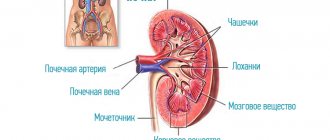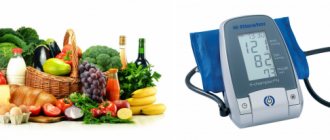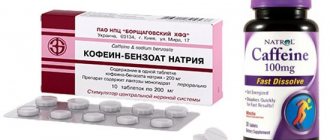Plasmapheresis is a method of efferent therapy with which doctors influence the internal environment of the human body. It quickly and effectively cleanses the blood of exogenous and endogenous toxic substances. This procedure is successfully used in the Yusupov Hospital to treat a number of diseases of various systems and organs. Thanks to the latest equipment and the extensive experience of the highly qualified medical staff of the intensive care unit, plasmapheresis is carried out at the highest level. The risk of complications is minimal.
Doctors at the Yusupov Hospital determine the number of plasmapheresis sessions by objectively assessing the patient’s condition and establishing the goal of treatment. Often, noticeable improvements are observed after the first procedure. But sometimes it is necessary to conduct at least five sessions, the schedule of which is developed by a specialist. Most often, the plasmapheresis procedure is performed as part of complex therapy.
Principle of plasmapheresis
Plasmapheresis is a gravitational method of extracorporeal detoxification (blood purification outside the human body). During centrifugation, centrifugal forces act on the blood. The shaped elements are arranged in layers around the axis of rotation. The densest cells (erythrocytes) move to the periphery. Closer to the center are the formed elements of blood, the density of which is less (leukocytes and platelets).
Pure plasma remains in the center of the separation chamber. In the case of therapeutic plasmapheresis, it is removed entirely, with all the physiological and toxic components it contains, and replaced with fresh frozen donor plasma or blood substitutes. Thanks to cooperation with large blood banks in Moscow, the Yusupov Hospital performs plasmapheresis for all patients in need of blood purification. The cost of donor plasma and blood substitutes is included in the price of the procedure.
Plasmapheresis is regarded as a universal efferent method that allows you to influence toxins of any nature, electrochemical charge, molecular weight. In recent years, plasma membrane filters have become widespread. They allow you to separate the liquid part of the blood from the formed elements. Plasmapheresis allows you to influence the structure of cell membranes of platelets and red blood cells. The total detoxification effect of plasmapheresis and its effect on blood fluidity are higher compared to other efferent methods.
Plasmapheresis is used as an independent method of extracorporeal blood purification or as part of detoxification measures, if the plasma obtained by plasmapheresis is exposed to sorbents, filtration, precipitation (interaction with an agent, as a result of which a precipitate forms). When carrying out plasma exchange, a certain volume of the liquid part of the blood is removed. Then at least 70% of the removed volume is replaced with fresh frozen donor plasma or a 5% albumin solution. This version of plasmapheresis is used to combat external intoxication syndrome. Plasmapheresis is effective for endotoxicosis, which develops due to the production of pathological products of a high-molecular nature, and polytoxicosis, which develops due to an excess of toxic substrates of various molecular weights.
Currently, doctors are increasingly using selective plasmapheresis methods. They are based on cryoheparin precipitation. Selective plasmapheresis techniques can increase the efficiency of the procedure and reduce the amount of required plasma replacement media. The cryoapheresis method is based on the property of the plasma protein fibronectin to form polymers in the presence of heparin in the cold and precipitate. Using this technique, from 30% to 50% of immunoglobulins M, A and G, fibrinogen, the C3 component of complement, and peroxide-modified lipoproteins are removed from the patient’s body, while maintaining up to 85-90%.
Make an appointment
If I become a donor, let them teach me!
Plasmapheresis is not only a therapeutic procedure, but also a donor procedure. Perhaps what I say will be a discovery for the reader, but the main consumable material of the blood service is not red blood cells, but fresh frozen plasma. In general, the ratio of erythromass and plasma consumption in any clinic ranges from 1/10 to 1/50. And primarily because for a seriously ill patient, blood cells - oxygen transport - are not as important as coagulation factors and proteins. Therefore, plasma procurement is the most important task of blood transfusion stations and departments. However, compared to plasma, which can be stored in a frozen state for a year without harm, blood cells can withstand a maximum of a month. And even then, by the end of the term, they are of little use; it is a stretch to call them cells. Rather, these are already corpses of red blood cells. Sometimes you hear the question: Isn’t this harmful? - What? - Well, donate blood, do plasmapheresis? Everything is harmful if you don’t have a sense of proportion, and when you pick your nose, you’re bound to someday bury your finger in the vault of your skull. There are rules for donation: blood is donated no more than once every 2 months, plasma no more than once every 2 weeks, and platelets no more than once a week. All these components are very necessary. And, considering that red blood cells are stored for up to 35 days, and platelets for 3-5 days in a special shaker, you can imagine how important donation is.
Types of procedure
There are two types of plasmapheresis:
- Therapeutic, the purpose of which is to remove various toxic substances from the body along with “contaminated” plasma;
- Donor - plasma is taken from a healthy person - a donor, and is subsequently infused into a patient in need.
In addition, depending on the method used to obtain plasma, plasmapheresis can be:
- Hardware;
- Centrifuge;
- Membrane;
- Sedimentation;
- Cascading.
Plasmapheresis is essentially similar to many other methods of cleansing the blood of toxic elements.
After blood is collected from the venous bed, it is sent through a special tube to the machine. Then, depending on the type of plasmapheresis, various procedure options are possible:
- During centrifugal plasmapheresis, plasma is separated from formed elements in a special device rotating at high speed. Then the formed elements are returned back into the bloodstream, and the plasma is removed from the device and disposed of;
- With membrane plasmapheresis, plasma is separated using a special filtration system. Thanks to the use of disposable filters, which are removed after use, the likelihood of contracting viral infections (HIV infection, hepatitis C) is reduced to zero;
- The principle of cascade plasmapheresis is not similar to other techniques described above. During this process, the resulting plasma is additionally filtered. This method allows you to remove high-molecular compounds from the body. When a high degree of purification is achieved, the plasma is returned back.
Medications
- Regidron. This is the most popular drug among people suffering from hangovers due to its availability and effectiveness. It is prescribed for diarrhea from severe alcohol poisoning. A packet of rehydron is dissolved in a liter of water and taken throughout the day. The absorbent effect of the drug cleanses the body of toxins, while simultaneously returning the necessary fluid and salts to it.
- Polysorb . A very soft absorbent, suitable even for children. It is useful for any food or drug poisoning, overeating and excessive flatulence. Adults are prescribed a tablespoon (0.1-0.2 g per kg of body) of powder in half a glass of boiled water two to three times a day, until the symptoms of intoxication disappear.
- Enterosgel . Prescribed to adults for acute alcohol and food poisoning. Dosage – 1 – 1.5 tbsp. three times a day, an hour or two after meals.
- Activated carbon. This is a natural and very popular fast-acting antioxidant in everyday life. Charcoal tablets can be used for any allergic, food or drug poisoning. In small doses, it is allowed for pregnant women to reduce metabolism. Usually a dose of 250 to 750 mg is indicated 3-4 times a day, but in each case the dosage must be calculated individually. This is a potent drug, so the gastrointestinal tract is at risk.
Among medications, echinacea and burdock root extract may also be useful.
Indications for use
The procedure is indicated for a variety of diseases and pathological processes that lead to the formation and accumulation of pathological elements in the blood. Plasmapheresis at the Yusupov Hospital is carried out if patients have the following diseases and conditions:
- Sepsis – to reduce the number of bacteria in the blood;
- Long-term compression syndrome - to remove formed toxic substances;
- HIV infections;
- Autoimmune pathologies – to remove aggressive autoantibodies;
- Atherosclerosis;
- Liver diseases accompanied by elevated levels of liver enzymes;
- Poisoning (toxic substances, medications);
- Severe alcohol intoxication, drug addiction.
Plasmapheresis is also prescribed to people suffering from:
- Oncological diseases;
- Damages to the heart muscle;
- Hypercholesterolemia (high levels of “bad” cholesterol in the blood);
- Complications after a heart attack;
- Rheumatism;
- Diseases of the organs of vision;
- Kidney pathologies;
- Myocarditis of viral etiology;
- Pulmonary vascular diseases;
- Bronchial asthma;
- Alveolitis;
- Pneumonia;
- Crohn's disease;
- Nonspecific ulcerative colitis;
- Diabetes mellitus
- Diseases of the reproductive system;
- If there is a Rh conflict during pregnancy;
- Acne;
- Dermatological problems (allergic rashes, psoriasis, urticaria, etc.);
- Neurological diseases.
The blood purification procedure is indicated for people who have problems with the skin (allergic rashes, psoriasis), joints, eyesight, and urinary system. Plasmapheresis sessions stabilize the condition of patients with multiple sclerosis, thromboembolism, alcoholism, and drug addiction. They are performed in the presence of Rh conflict during pregnancy.
The American Academy of Neurology has established the following indications for plasmapheresis in neurology:
- Severe form of Guillain-Barre syndrome;
- Chronic inflammatory demyelinating polyneuropathy;
- Polyneuropathy with monoclonal gammopathy with a possible role of IGG/LGA;
- Crisis or preparation for surgery of patients suffering from myasthenia gravis;
- Multiple sclerosis.
Plasmapheresis is successfully used to treat about two hundred diseases. The procedure, combined with drug therapy, can significantly improve the condition of patients and eliminate existing symptoms of diseases. Membrane plasmapheresis at the Yusupov Hospital is successfully used to treat cancer. High results of the procedure are ensured by the latest equipment and extensive experience of doctors.
Expert opinion
Alexey Vasiliev
Head of the Department of Neurology, Candidate of Medical Sciences, neurologist of the highest category
“High-volume plasmapheresis is considered the gold standard treatment for a wide range of neurological diseases. It is performed for patients with severe, aggressive multiple sclerosis, acute disseminated encephalomyelitis, myasthenia gravis, chronic inflammatory demyelinating polyneuropathy and many other diseases. This treatment method has a pronounced therapeutic effect, is safe and accessible to patients.
At the Department of Neurology of the Yusupov Hospital, plasmapheresis is performed with a volume of 2-2.5 liters per session. Such intensive use of plasmapheresis allows you to maximally cleanse the body of toxins and antibodies that destroy the myelin sheath of nerve fibers. After several sessions, patients note a decrease in the symptoms of the underlying disease and a general improvement in well-being.”
How to treat a sick person at home
There are several ways you can help a patient yourself:
- sorbent (activated carbon at the rate of 1 tablet per 10 kg of weight);
- taking liquids (juice, tea with lemon, herbal or oatmeal infusion, water containing useful minerals);
- taking medications (diuretic, aspirin, glycine, valerian, vitamin C, succinic acid, Essentiale).
Before cleaning the blood, provide the patient with plenty of fluids, liquid and light food, and the medications listed. Monitor the patient's condition until the ambulance arrives. Watch your diet, give a glass of warm water before each meal. Eliminate fatty, salty, spicy foods from your diet, and do not drink coffee. You can add a spoon of honey, a slice of lemon or grated ginger root to the tea. The liquid you drink should be at room temperature.
Cleaning blood from alcohol at home is responsible for:
- restoration of blood circulation;
- delivery of oxygen to cells;
- improvement of filtration, liver adsorption;
- normalization of the urinary system;
- removal of toxic substances;
- enrichment of tissues with nutritional elements;
- preventing dehydration.
Preventive measures against the consequences of withdrawal are needed to quickly improve your well-being. Elimination of symptoms of mild hangover lasts a day, withdrawal symptoms last at least several days. They relieve nausea, headaches, relieve nervous tension, but in emergency cases they remain powerless. If the clinical picture is severe, consult a narcologist. When the condition worsens, you should immediately call the drug treatment hotline.
Contraindications to plasmapheresis
Like any other procedure, plasmapheresis has some limitations: absolute and relative contraindications. The need for its use is determined by the attending physician after a comprehensive examination of the patient. Plasmapheresis is absolutely contraindicated in case of serious damage to vital organs (these include the brain, heart, lungs, kidneys and liver), as well as in case of massive bleeding. Due to the high risk of complications, including death, plasmapheresis is not performed if the patient has the following absolute contraindications:
- Cardiovascular diseases (especially the right parts of the heart muscle);
- Cerebrovascular accidents;
- Arterial hypertension (excessively high blood pressure);
- Anemia;
- High blood clotting;
- Blood too thick;
- Acute and chronic liver dysfunction;
- Drug addiction and neuropsychiatric disorders.
Blood purification is prescribed with caution in the following conditions:
- Tendency to bleed;
- Ulcerative lesions of the digestive tract;
- Arrhythmias, low blood pressure;
- Insufficient level of protein in the blood;
- Infectious processes in the acute stage;
- Menstruation (women).
Positive effects
Plasmapheresis allows you to cleanse the blood of harmful substances:
- Metabolic products - uric acid, urea, creatinine;
- Inflammatory mediators;
- Hormones;
- Antigens;
- Antibodies;
- High molecular weight lipids;
- Toxins.
The procedure allows you to achieve significant physiological changes. By creating artificial hypovolemia, the body's protective properties are activated. Swelling decreases, the concentration of harmful substances in the blood decreases. In order for the results of the procedure to be as high as possible, patients at the Yusupov Hospital are prescribed a therapeutic course of plasmapheresis, which usually consists of three to four sessions.
Preparing the body
Blood is a liquid that absorbs all the waste products of our body. Now mentally conduct an experiment. There are two riverbeds: one covered with clean pebbles, and the second with garbage. Both flow with water from the same source. Which channel will deliver clean water to the sea, and which will deliver polluted water? It's not hard to guess.
Therefore, even before cleaning the “liquid” in our body (and this is the literal translation of the ancient Indo-European prototypes of the word “blood” in many languages), we should clean the “banks and bed” - that is, the body, namely the stomach and intestines, after all, most of the “impurity” comes through food .
Even people leading a healthy lifestyle, before one-day fasting, should limit themselves to light food in the second half of the previous day, and also not overload the stomach immediately the next day. As experienced healthy lifestyle instructors say: “you need to enter a hunger strike gently and exit it gently.”
As for those who are accustomed to not limiting themselves to anything in everyday life, they need to refrain for several days from :
- nicotine (and any other drugs);
- alcohol;
- fatty, spicy, salty, fried;
- sparkling water, any energy drinks;
- sweets, flour, fast food and overeating in general.
It is known that the toxins of nicotine and alcohol enter directly into the blood and remain there for many hours (after a single drink of alcohol) and even days (with constant smoking). Toxins from food also remain in the body for a long time (it is intoxication that causes frequent headaches, malaise without illness, “withdrawal”).
If you do not abstain for several days and abruptly switch the body to cleansing, the concentration of highly toxic poisons in the blood will be very high, and in the absence of the usual nutrients, this will lead to unbearable headaches, dizziness, and surges in blood pressure. Everything can very easily end in hospitalization.
What diseases is it used to treat?
Plasmapheresis is an indispensable detoxification method for poisoning with alcohol, external and internal toxins, and poisons. The procedure is used to prevent stroke, heart attack and other cardiovascular diseases. A course of plasmapheresis helps to gradually cleanse blood vessels of cholesterol deposits, making them strong and elastic. Normal blood circulation in the body is restored, and the risk of cardiovascular diseases is reduced. Patients experience heart pain, blood pressure normalizes, memory and sleep quality improve.
By ensuring good blood supply to the body, plasmapheresis improves the functioning of the heart, blood vessels, and kidneys. The risk of developing diabetes complications is reduced. After the procedures, trophic ulcers heal quickly. Plasmapheresis can overcome insulin resistance.
The positive effect of plasmapheresis is observed in autoimmune diseases (bronchial asthma, allergies, rheumatoid arthritis, multiple sclerosis). These diseases arise as a result of disturbances in the functioning of the human immune system, when it begins to perceive its own tissues as foreign and fight them, producing special autoantibodies. During plasmapheresis sessions, they are removed from the body, like other harmful substances. A course of plasmapheresis helps to quickly cope with exacerbation of the pathological process, prolong the period of remission and prevent possible complications of the disease. Plasmapheresis also allows you to significantly reduce the dose, and sometimes even cancel it, of hormonal drugs.
Plasmapheresis allows you to quickly stabilize the patient’s condition and improve liver function in hepatitis B and C. The success of drug therapy for hepatitis directly depends on the amount of viral components in the body. The virus changes and deforms the cells of the body, disorients the immune system, which begins to produce antibodies to its own cells. Systemic diseases (diabetes mellitus, autoimmune thyroiditis) are added to hepatitis. In this case, hepatitis therapy becomes dangerous, because interferon drugs increase the body’s autoimmune aggression. The blood is purified from viral components, autoantibodies, circulating immune complexes and other harmful substances using plasmapheresis. Extracorporeal detoxification sessions allow you to provide the necessary treatment and prevent the development of autoimmune processes.
Chronic inflammatory processes of the reproductive organs occur in men and women. Their cause is viruses, fungi, bacteria. Diseases can occur either with clinical manifestations or hidden. Often chronic infections lead to infertility, sexual disorders, and cause disturbances in the development of the fetus in the womb. Antibacterial therapy is often not effective enough. Plasmapheresis cleanses the blood at a deep cellular level, allows you to influence the source of infection and cope with chronic inflammation. After plasmapheresis, the body's resistance to infection increases and reproductive function is restored.
Chronic fatigue syndrome is manifested by increased fatigue, which does not go away even after proper rest. Patients are depressed, they suffer from headaches, and their performance decreases. Pain in muscles and joints, irritability, disturbances in sleep quality appear, lymph nodes become enlarged, and body temperature rises for no reason. In this state, the body is not able to cope with infectious agents. Antiviral drugs, immunomodulators, antidepressants do not solve the problem. The use of plasmapheresis makes it possible to restore the body’s lost resistance to bacteria and viruses and to stop the manifestations of chronic fatigue syndrome.
Make an appointment
How does alcohol purify blood?
Drinking alcohol in large doses causes a pathological condition.
Clinical picture:
- Mild intoxication - the patient is conscious, euphoria develops, and minor disturbances appear.
- Severe intoxication - gross behavioral disturbances, poor facial expressions, slurred speech, thirst, pain in the abdomen and liver, muscle weakness.
- Alcohol poisoning is a condition associated with alcoholic coma. Epileptic seizures, involuntary bowel movements or bladder defecation, amnesia, severe autonomic dysfunction, psychosomatic disorders, and loss of consciousness occur.
Intoxication is the harmful effect of toxin breakdown products on metabolism with a small amount of alcohol in the blood or its complete absence.
Clinical signs:
- stimulation of the central nervous system;
- ataxia;
- dysarthria;
- smell of alcohol when exhaling;
- cyanosis of the skin (blue face);
- sticky, cold sweat on the skin;
- low body temperature;
- with external stimuli, the constriction of the pupil changes with mydriasis;
- spasm of the chewing muscles and shoulder girdle;
- weakness, dizziness, headache, vomiting caused by hypotension;
- breathing disorders;
- nervous system without a persistent focus of symptoms;
- enlarged, hardened liver upon palpation;
- involuntary urination, defecation on the eve of coma.
Folk remedies help get rid of hangover symptoms, but not withdrawal symptoms. Cleansing your blood from alcohol allows you to safely restore your health. An intravenous drip is effective for relieving or relieving withdrawal symptoms, is used for detoxification, and is prescribed at the first stage of treatment for diseases caused by alcohol. You can’t do without the help of a specialist at home - doctors know how to purify the blood of alcohol. When the addict’s condition cannot be stabilized at home, they are sent to a hospital.
Examination before the procedure
To identify indications and contraindications for plasmapheresis and to exclude possible complications of the procedure, patients at the Yusupov Hospital undergo a comprehensive examination on the eve of the procedure:
- Examination by a therapist, which includes measuring blood pressure and assessing other important indicators of the body’s functioning;
- Clinical blood test to diagnose acute or chronic inflammatory process and other diseases;
- Determination of blood glucose levels (allows you to identify diabetes mellitus, and in persons with a confirmed diagnosis - to control blood glucose levels);
- Coagulogram (for the purpose of assessing the parameters of the blood coagulation system, identifying a tendency to increased bleeding or blood clots);
- Blood test for the Wasserman reaction (allows you to detect syphilis);
- Determination of antigens to HIV and hepatitis;
- A biochemical blood test with determination of the level of protein fractions allows us to identify a low protein content in the blood, which is a relative contraindication to plasmapheresis sessions.
In order to evaluate the work of the heart, an electrocardiogram is recorded using modern devices. At his discretion, the doctor may prescribe other examination methods that confirm the need for plasmapheresis or exclude this method of extracorporeal detoxification for a particular patient.
The use of plasmapheresis in the treatment of drug addiction and alcoholism
When helping people with drug or alcohol addiction, blood testing is very often performed. It is especially relevant for binge drinking, overdose, abstinence, and ethanol intoxication.
Plasmapheresis helps to quickly improve the well-being of addicts and reduce their cravings for illegal substances. It is for this reason that it is often included in the therapeutic regimen when providing drug treatment to this category of patients.
With the help of the technique, metabolic processes are brought into order, the likelihood of complications dangerous to health and life is reduced, and the psycho-emotional state improves.
The text was checked by expert doctors: Head of the socio-psychological service of the Alkoklinik MC, psychologist Yu.P. Baranova, L.A. Serova, a psychiatrist-narcologist.
CAN'T FIND THE ANSWER?
Consult a specialist
Or call: +7 (495) 798-30-80
Call! We work around the clock!
Possible complications
Complications may develop if the medical staff performing the procedure does not properly comply with all instructions. Plasmapheresis may be accompanied by the following complications:
- Formation of blood clots and hemolysis in the device. Thrombosis can be prevented by the use of adequate doses of heparin;
- Allergic reactions to the materials of the plasmapheresis device. The ultra-modern equipment of the Yusupov Hospital eliminates these phenomena;
- Phlebitis - a section of the vein that is punctured for blood sampling can become inflamed;
- Embolism;
- Bleeding – occurs with an overdose of drugs that reduce clotting rates. The likelihood of bleeding is increased in persons suffering from peptic ulcers of the digestive system;
- Sepsis, HIV infection (human immunodeficiency virus). At the Yusupov Hospital, plasmapheresis is performed only with sterile disposable needles and instruments, due to which the likelihood of infection is reduced to zero; the clinic has a license to provide transfusiology.
Nowadays, plasmapheresis is the most effective auxiliary method used to treat most diseases. Contrary to popular belief, this procedure does not have a general strengthening and rejuvenating effect. The majority of patients who have undergone plasmapheresis at the Yusupov Hospital leave positive reviews about this procedure. Their well-being improves, their performance increases, and they feel a surge of strength.
The benefits of plasmapheresis are as follows:
- strengthening the body's defenses;
- reducing the level of “bad” cholesterol in the blood;
- acceleration of metabolic processes;
- improving cell oxygen saturation.
Before undergoing plasmapheresis at the Oncology Clinic of the Yusupov Hospital, patients are prescribed a comprehensive examination to identify diseases for which this procedure is contraindicated. Thanks to the ultra-modern equipment of the clinic, the research results obtained are of maximum accuracy. After plasmapheresis sessions performed at the Yusupov Hospital, complications do not develop.
References
- Academician RAMS, prof. IN AND. Krasnopolsky, Doctor of Medical Sciences, Prof. V.A. Petrukhin, Ph.D. A.P. Melnikov: Management of pregnant women with thrombophilia. — Russian Bulletin of Obstetrician-Gynecologist 4, 2013
- R.G. Shmakov, P.A. Kiryushchenkov, A.V. Pyregov, M.A. Vinogradova, O.R. Baev, N.E. Kahn, O.G. Pekarev, N.I. Klimenchenko, N.K. Tetruashvili, V.L. Tyutyunnik, Z.S. Khodzhaeva, N.V. Dolgushina, Brief protocol: Study of the hemostatic system during pregnancy and after childbirth, 2015.
- Venous thromboembolism, thrombophilia, antithrombotic therapy, and pregnancy. American College of Chest Physicians evidence-based clinical practice guidelines 8th edition. American College of Chest Physicians – Medical Specialty Society. 2001 January.
- Tsantes AE, et al. Association between the plasminogen activator inhibitor-1 4G/5G polymorphism and venous thrombosis. A meta-analysis. Thromb Haemost 2007 Jun;97(6):907-13.
Advantages of performing the procedure at the Yusupov Hospital
Plasmapheresis at the Yusupov Hospital is carried out by experienced specialists who, during the procedure, monitor the appearance of any changes in the patients’ condition and, if necessary, make adjustments. To perform plasmapheresis, the Yusupov Hospital has the latest equipment that ensures the highest quality of its implementation. Patients are housed in comfortable, cozy, clean rooms, the equipment of which corresponds to the latest technology.
The experienced medical staff of the Yusupov Hospital provides round-the-clock professional care to patients. You can get up-to-date information about the nuances of preparing for the plasmapheresis procedure and its cost, and make an appointment with a specialist online or by calling the Yusupov Hospital. The contact center operates 24 hours a day, seven days a week, seven days a week.
Make an appointment
Tablets or plasmapheresis? The choice is yours!
These conditions have pushed plasmapheresis slightly towards exotic techniques that are too complex for outpatient clinics or small clinics. And the constant fuss of drug manufacturers and dealers around efferent methods (blood secretion and its external modification) as little tested (and this is for 100 years), as expensive and complex, as well as active work with doctors to promote drugs on the medical market, have noticeably weakened interest to plasmapheresis. Why, such a factor as a reliable, statistically proven by a number of early studies, reduction in the consumption of drugs in the treatment of serious diseases, like a red mantle, irritates the manufacturers of hormonal drugs. Why do they need such a competitor? Therefore, ambiguous works periodically appear in the medical press, hinting at the dubiousness of the plasmapheresis method in therapy. The goal is simple - to discourage practitioners from even the shadow of a thought about using plasmapheresis in the treatment of a particular disease where it is necessary to use corticosteroids, for example, atopic dermatitis, bronchial asthma, scleroderma, lupus. After all, it is obvious that a reduction by a third in the consumption of prednisolone by patients will primarily affect the income of pharmacists-manufacturers and sellers. And the fact that patients’ bones are destroyed, Cushing’s syndrome (obesity) and stomach ulcers develop cannot but rejoice - after all, the volume of drugs consumed is not decreasing, but increasing.
What does plasmapheresis do?
- Purification of the blood and all tissues of the body by reducing the excess content of proteins, lipids, cholesterol, hormones, antigens, antibodies, immune complexes in the plasma
- Ridding blood vessels of cholesterol plaques, reducing blood viscosity, restoring normal blood supply to all human organs and systems
- Activation of brain function, cessation of dizziness and headaches
- Normalization of heart function, relief of angina attacks
- Timely removal of toxins from the body due to the normal functioning of the liver and kidneys
- Strengthening the immune system
- Improving skin properties (anti-aging effect), etc.
1 Plasmapheresis in MedicCity
2 Plasmapheresis in MedicCity
3 Plasmapheresis in MedicCity










